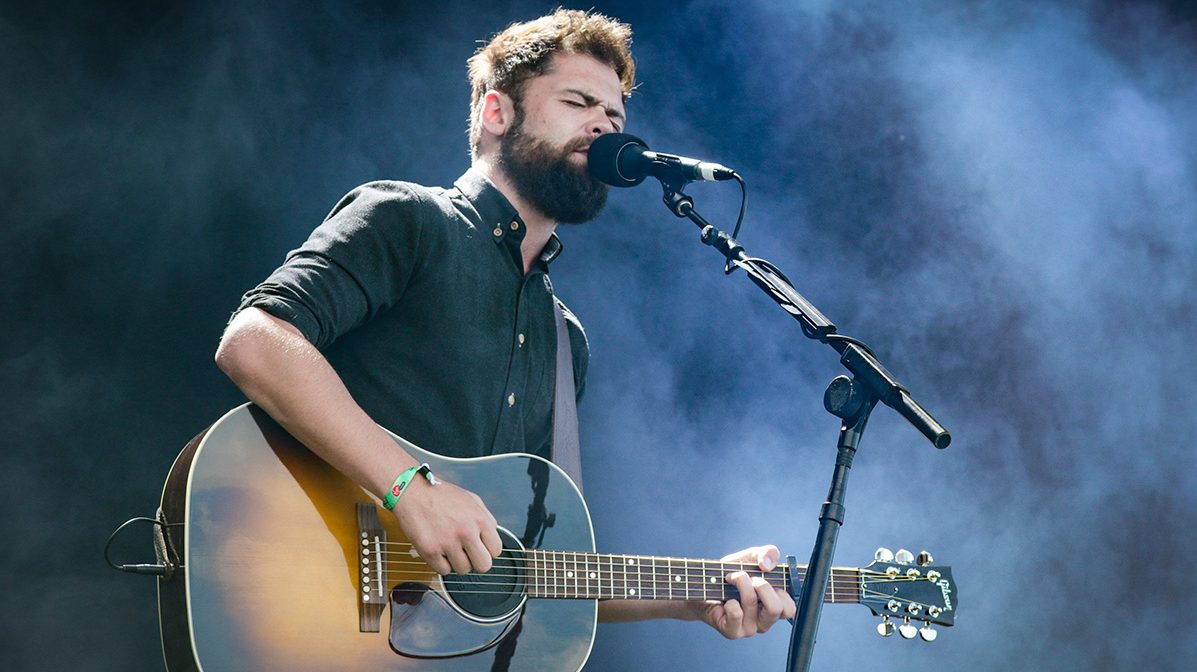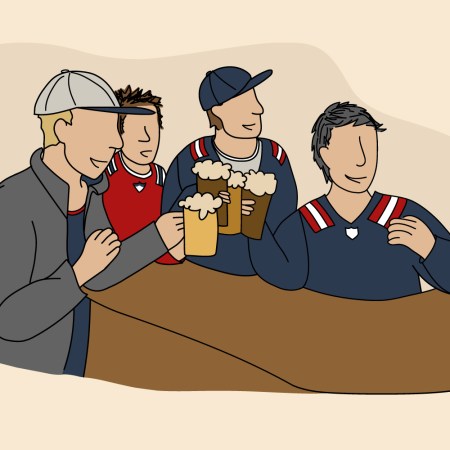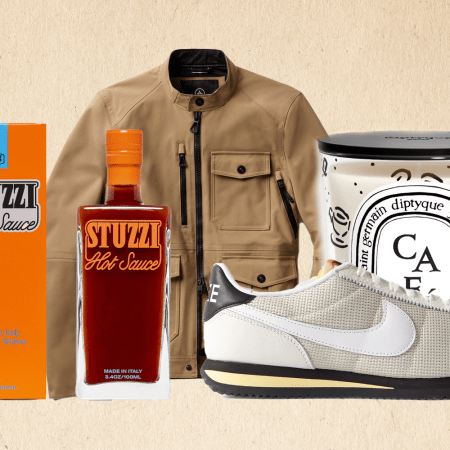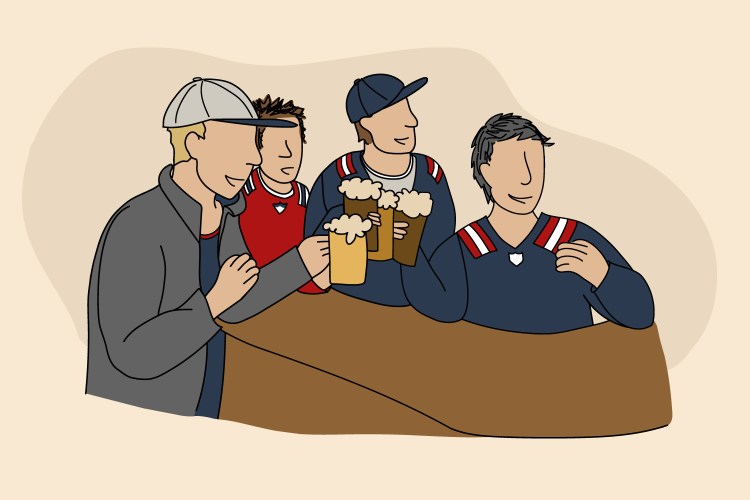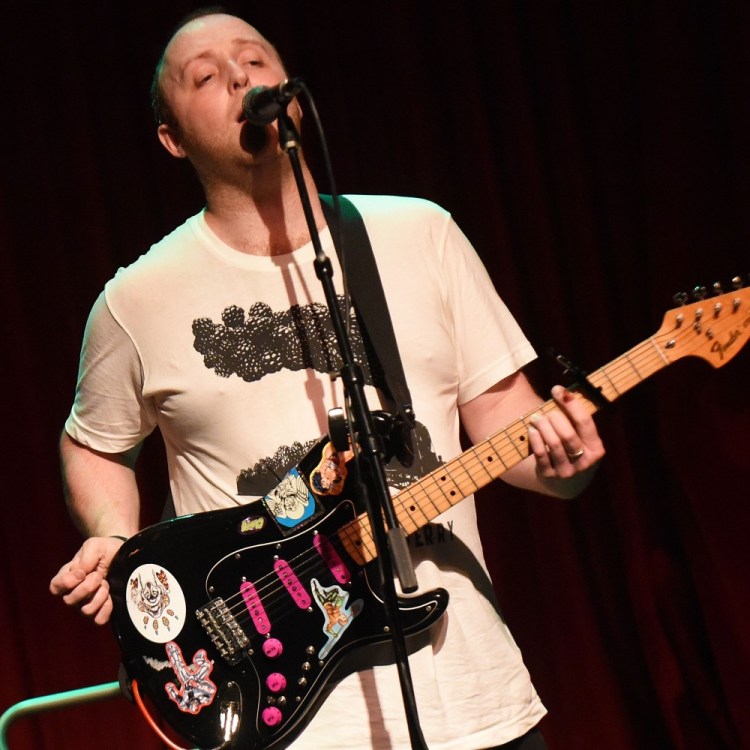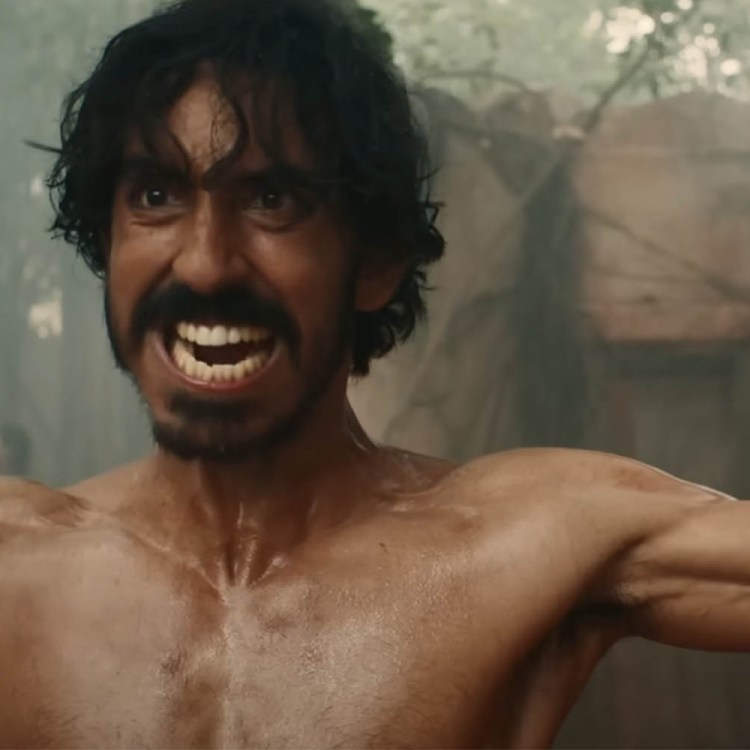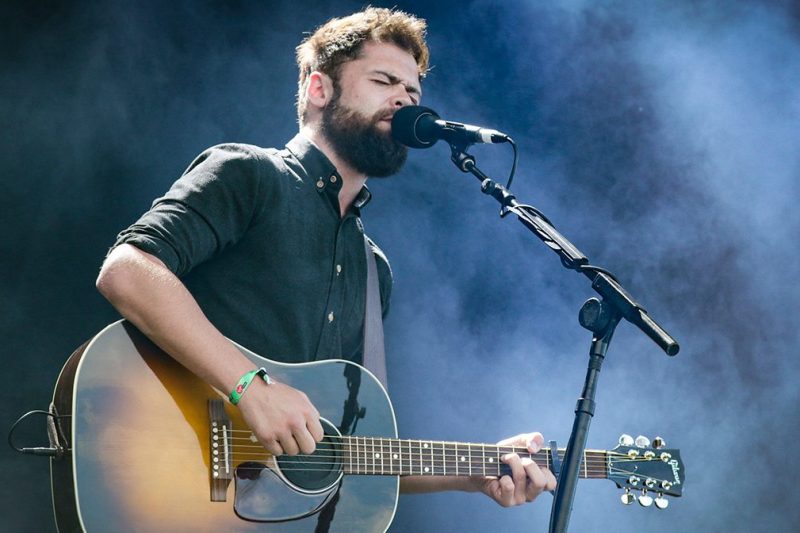
It’s entirely possible that the last time British folk artist Passenger (a.k.a. Mike Rosenberg) swept through your town on tour, you could’ve walked right past him, mistaking him for just another bearded hipster.
But Passenger is anything but some frustrated trustafarian: He’s an international superstar, who in just under a decade, has landed a Top 5 hit on the Billboard Hot 100 (“Let Her Go”), had the accompanying video for the tune viewed by over 1 billion people on YouTube, and just recently scored a No. 1 record in the U.K. (it reached a respectable No. 70 on the Billboard 200 in the U.S., too).
Ditching school at 16, Rosenberg ended up traveling the world couch-surfing and playing on street corners to make a living (i.e. “busking,” as the Brits call it). Putting out a string of albums between 2007-11, he eventually hit it big with 2012’s All the Little Lights, which included the monster hit “Let Her Go.”
Having just released his seventh album in September, Young as the Morning Old as the Sea, and heading out on an international tour, RealClearLife caught up with him on a tour stop in Cologne, Germany.
So you recently beat out rock legend Bruce Springsteen to nab a No. 1 record in the U.K. You actually wrote a song about wanting to beat him. Did you just knowingly start a beef with The Boss?
I hope not. He’s one of my all-time favorites musicians, so it was funny to be in direct competition with him; that’s something that I never thought would really be the case. But yeah, I wrote a funny little song about it and put it up on YouTube in good spirits.
RCL caught you at the Osheaga Festival in Montreal this past summer, and you were all by yourself onstage, with no band behind you. Do you picture a crowd of tens of thousands of people in front of you when you write a song?
No, not really. It’s funny because I’m actually touring with a band for the first time in about seven or eight years, and I’d say, up until this point, it’s been just me on my own. Yeah, I’m pretty terrified sometimes, like at Osheaga Festival, which there must’ve been 30,000 people in the crowd that day. But no, I don’t think I write with that in mind; a good song is a good song, no matter if you’re in front of five people or 500,000. I don’t think it really changes things that much.
Busking must’ve helped calm your nerves a bit in terms of playing in front of throngs of people. What’s one of your favorite busking stories?
There was this really funny time in Australia. I was playing, and at the end, this kid came up to me and asked me why I played so many Passenger covers. He didn’t recognize me at all. I played along with it for awhile.
Onstage at Osheaga, you apologized for having just the one tune, “Let Her Go,” on the radio in Canada. We can imagine the song has opened some incredible doors for you as a songwriter. What are a few things you own thanks to that song?
I don’t really think about it along those lines. As you say, it has opened doors, but I feel like there are many things that I’ve done because of that song. I’ve been able to go to these festivals and get on Jimmy Fallon and do all this amazing stuff that wouldn’t have happened without that song. I never really think about it in [terms of] “owning” things. It’s more the experiences that the song has given me.
You didn’t even buy a car or something extravagant when you got your first royalty check from the record company?
I’m a man of small pleasures, really. I drive a Volkswagen Golf, so yeah, I don’t really go overboard with the bling and the style, unfortunately. For five years, I didn’t have a house. I was just staying in people’s front rooms and at friend’s places and hostels, so I’ve been able to buy myself a house in my hometown of Brighton, and that was always the dream, man: to be able to do that. So again, it’s not very cool, but it’s something that changed my life, and I’m very grateful for [it].
The video for “Let Her Go” has also been viewed by well over 1 billion people on YouTube. Describe to me what you think your 1 billionth Passenger fan is like.
[laughs] Well, I think it’s impossible [to say]. When a song gets that big … it really has reached the absolute corners of the earth now, that song. We get messages from Kenya and the Philippines and Tibet—name any country, and we’ve gotten messages from it. I think at this point, it’s completely impossible to try and understand who the video’s billionth fan was. It could’ve literally been anyone on the planet, which is one of the coolest things … I’ve never thought about it, and that’s such a cool thing to be able to say.
Your voice reminds us a lot of British artist David Gray. Are you a fan of his work, and who are some of your contemporaries that you think everybody should be listening to right now?
Yeah, I love David Gray. When I was growing up, he and also Damien Rice came off the scene and really laid the way for singer-songwriters. Because before [David Gray’s] White Ladder and [Damien Rice’s] O came out, it wasn’t cool at all, it wasn’t really relevant. Those albums came out, when I was a teenager, and they opened things up for me.
I think nowadays, there are so many [up-and-coming artists] to choose from. I’m touring with a guy named Gregory Alan Isakov, and he’s one of my favorite artists. He’s from Denver, Colorado. He’s a fantastic lyricist, [has] a beautiful voice, and he’s got an album out called The Weatherman, which is one of my favorite records at the moment.
Historically, folk artists get tons of love for their craft but often never “make it.” Do you feel like you’ve gotten the best of both worlds?
I really do, man, I really do. Because it’s not like I’m stopped in the street all the time; nobody recognizes me. I live a very normal life. But then I can go and play in front of 15,000 people [like] two nights ago in Amsterdam, and it’s kind of surreal.
Folk artists also get away with rocking unruly facial hair. Do you think beards lead to creativity, or are they just a pain in the ass to take care?
[laughs] I find it more of a pain in the ass to keep shaving, really. I’ve had my beard for years, and obviously, they’re very fashionable at the moment. To be honest, I think my beard is here to stay; I think it hides a multitude of things.
Let’s talk about your fabulous new album. The title was obviously taken from the song with the same name. It’s sort of a running travelogue. Do you like to travel in luxury, or are you a guy who can live out of a suitcase for weeks and weeks?
It’s funny, I do live out of a suitcase for weeks and weeks; that’s the nature of touring. But I used to travel on trains—the least luxurious way of traveling ever. I had no money when I was busking; I would just try to get from A to B anyway I could. And then you have a bit of success, get a nice tour bus, fly a business class flight, and you get so used to it. It’s very difficult to remember back in the day. I think it’s very difficult to go back to that type of stuff, I have to admit. I think I’m a bit spoiled now, and have gotten a bit soft with my travel arrangements.
Other artists have told us that sad songs are much easier to write than the upbeat ones. Your new song “Anywhere” is a particularly upbeat one. Was that difficult to complete?
You know what, it wasn’t; it was a really easy song to write; it came out very naturally. You’re right, though, and the other artists you’ve spoken to I’d agree with: I tend to find the more melancholic songs easier to tap into and write. I think with upbeat songs, you’re always treading a very fine line between something really cool and something utterly cheesy and awful. I think that’s always the difficulty with happy songs. I think and I hope that [“Anywhere”] walks that fine line really well; it doesn’t ask too much of the listener; it’s very obvious as to what the song is [about], but you can’t help but want to tap your foot and enjoy it. When I wrote that song I was really happy, because I knew that I hadn’t forced it and I hadn’t pushed something out. It was a very natural emotion.
Are you the type that just sits down with your acoustic guitar and writes songs, or do you have a specific songwriting process that you go through? Everything’s different, really. I’m lucky in the fact that I can write anywhere and everywhere, and I do. I write all the time when I’m on tour and when I’m at home. I try not to have too many rules about it I just try and let it be as natural as possible. If I don’t write for three months, that’s fine; if I write three songs in a week, that’s great. The least amount of pressure you can put on writing, the better. That’s what I’ve found.
“Somebody’s Love” is the lead single—and is the exact opposite of “Anywhere.” Are you still searching for that special, permanent someone?
Well, that’s an interesting question. I’m with someone at the moment, which is great and in its early days, so who knows?
We notice you have a duet on the album with Birdy. Did you hire her for the gig after she covered “Let Her Go”?
I did see that cover and I loved it, but I was aware of Birdy before that as well, and I just think her voice is glorious; it’s so unique; it really stands out. She’s such a lovely girl and an amazing talent. It was just one of those happy accidents. We reached out, and she was keen to do it, and it just worked and fell into place really beautifully. I’m very lucky to have stumbled across her.
We’ve been told you’ve written a lot of songs about other people and their stories. Have you ever received backlash from any of the subjects?
No, to be honest, most of the people I’ve written about have been people I’ve been not necessarily close to; it’s not like family or friends. I wrote a lot of those kinds of songs when I was busking, because you are constantly meeting strangers and hearing these amazing stories that people would tell me. So it’s often very unlikely that these people would ever hear these songs. I really try and stick closely to the truth all the time, and certainly, [the songs have] never been offensive about the subject, so I don’t think it would ever be too much of a problem.
One last question: If you could have one famous passenger—alive or dead —in your car with you, who would it be and why?
That’s a good question. I think I’d go with Bruce Springsteen, just so I can give him s—t about beating him to No.1!
This article was featured in the InsideHook newsletter. Sign up now.
